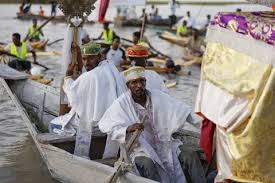The United States has intensified its controversial policy of deporting migrants convicted of crimes to third countries, with Africa now becoming a key destination. In a move that has drawn global scrutiny, 12 men from countries including Mexico, Myanmar, and Yemen were recently flown to Eswatini and South Sudan, while one South Sudanese national was returned to his home country. Human rights advocates argue that these deportations could violate international law, as neither country is the migrants’ place of origin.
The policy, part of former President Donald Trump’s mass deportation pledge, has sparked alarm among UN human rights experts who warn that sending individuals to third countries without guaranteeing their safety breaches the principle of non-refoulement, a cornerstone of international asylum law. This principle prohibits returning individuals to any country where they may face persecution, torture, or inhumane treatment, whether it is their home country or a third-party destination.
Legal experts emphasize that such deportations must follow due process, giving migrants the opportunity to challenge removal if credible evidence shows the receiving country is unsafe. However, recent cases raise serious concerns. In May, a flight bound for South Sudan was challenged in US federal court after it had already departed. The judge ruled that the migrants must be allowed to contest their deportation, forcing the plane to divert to Djibouti. Reports indicate the deportees were held in a shipping container on a US military base while awaiting the court’s decision. The case eventually reached the Supreme Court, which allowed the deportations to proceed without ruling on South Sudan’s safety as a destination.
South Sudan remains one of the world’s most unstable nations, with ongoing armed conflict and humanitarian crises. The US State Department currently warns against all travel to the country, citing risks of violence, kidnapping, and lawlessness. Political activists report that deportees sent to the capital, Juba, are being held in harsh detention facilities notorious for poor conditions.
Eswatini, the other recipient country, is also under scrutiny. Government officials confirmed the migrants are being kept in a correctional facility until arrangements are made with the International Organization for Migration (IOM). The US has described some of the deportees as convicted of serious crimes, including murder and sexual assault, but Eswatini’s main opposition party, the People’s United Democratic Movement (Pudemo), has condemned the deal as “human trafficking disguised as a deportation agreement.” Pro-democracy activists warn that the small southern African kingdom is being turned into a “dumping ground for criminals,” while raising concerns over the country’s overcrowded and under-resourced prison system.
International law experts argue that these deportations violate both due process and human rights obligations. Professor David Super of Georgetown University says, “There’s no evidence the US is giving people a fair chance to challenge their deportation, and they’re being sent to countries with serious human rights concerns.” UN Special Rapporteur on Torture, Dr. Alice Edwards, highlighted the danger of politicizing the deportation process and warned that migrants are being placed in unfamiliar environments with no legal status and minimal support, describing the practice as a “deeply flawed idea.”
The controversy comes at a time when the US is seeking new bilateral arrangements with African nations amid growing geopolitical competition on the continent. Critics fear these deportation deals risk undermining international human rights standards while placing vulnerable people in peril. As debates over migration and sovereignty intensify, the Eswatini and South Sudan cases could set a precedent for expanded third-country deportations, prompting urgent calls for stricter adherence to international law and protection of migrant rights.














Leave a comment